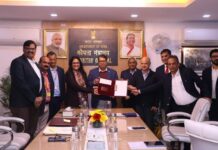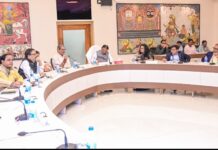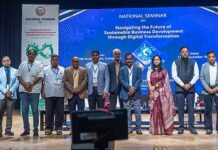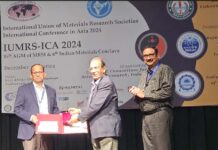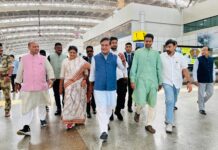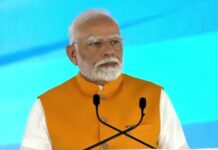By Our Correspondent
BHUBANESWAR: As Odisha aims to become a 500 billion dollar economy by 2036, it is imperative to embrace digital transformation in different sectors to drive efficiency and growth, speakers at a national seminar on the subject said on Wednesday.
“To achieve this goal, the state needs to grow in all sectors of the economy for which digital transformation was required to make business sustainable,” Dr. Prabodh Mohanty, President of the Utkal Chamber of Commerce and Industry Ltd (UCCIL), said.
Dr. Mohanty was speaking as the chief guest at the inauguration of a day-long national seminar on the subject ‘Navigating the future of Sustainable Business Development through Digital Transformation’ organised by the Institute of Business and Computer Studies (IBCS), faculty of management sciences of Siksha ‘O’ Anusandhan Deemed to be University (SOA) here.
Stating that the mining and metal sector was the driving force of Odisha’s economy, he said the state government had introduced digital transformation in the mining sector as it could propel efficiency and growth.
Artificial Intelligence (AI) and Block Chain were influencing digital transformation which was playing a crucial role in shaping the future, Dr. Mohanty said.
The inaugural program was also addressed by Dr. Namrata Misra, Chief Executive Officer of Bhubaneswar City Knowledge Innovation Cluster (BCKIC), Bhubaneswar, Mr. Ashwini Kumar Rath, Founder and Chief Executive Officer of BATOI, Bhubaneswar and Prof. Anup Kumar Samantaray, Dean of IBCS, who presented the keynote address.
Prof. Jyoti Ranjan Das, Dean (Students’ Welfare), SOA, Prof. Duryodhan Jena, Academic Head—MBA Program, IBCS and Dr. Ashish Mohanty, Associate Professor, IBCS, also spoke. Prof. (Dr.) Prasenjit Mohanty, Pro-Vice Chancellor, SOA, presided over the session.
Dr. Misra said the time was ripe for India’s digital transformation and the need was to focus on innovation and sustainable development.
“The research scenario in India is very different now as the country is witnessing a paradigm shift in career options. Students, who are the agents of change, are keen on entrepreneurship,” she said.
Dr. Misra said other countries were looking at India where digital transformation was taking place while Odisha was quietly carving a niche for itself as home grown start-ups were working on devices like Artificial Intelligence and Machine Learning.
Mr. Rath said though there was concern about AI accentuating the problem of unemployment, it was also certain that it would create new jobs in greater number. “A few years from now AI will catch up with human intelligence,” he said adding instead of focusing on syllabus, a student must learn what needs to be learnt.
Prof. Samantaray said the twin challenges of sustainability and digital transformation were forcing a rethink in business models and supply chains. It had presented business leaders a unique opportunity to shape the future of business and create a more sustainable and equitable world.
“We need a fundamental shift in how we think, work and interact with each other and with our customers,” he said.
Prof. Das said digital transformation meant the integration of digital technology into all areas of business focusing mostly on how people operate and deliver value to the customers. “Digital transformation is not a new strategy but it has been renewed by several key technologies which have come into maturity more recently,” he said.


